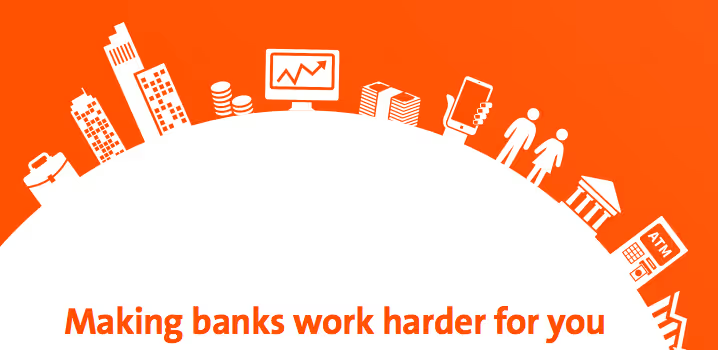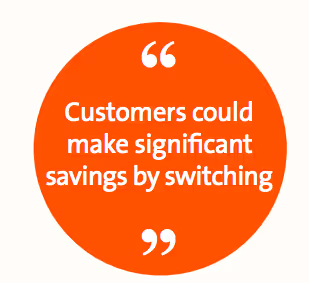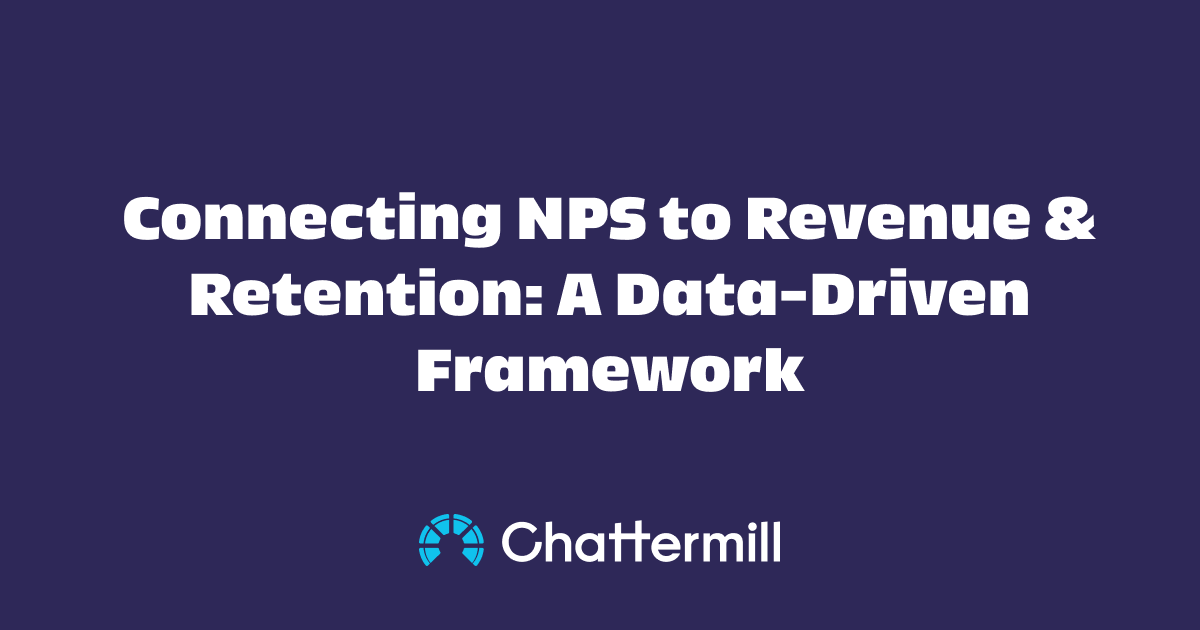
Ever since the financial crisis in 2007–08 banks and other financial firms have lost a lot of love. Some people may argue they didn’t have all that much love to begin with. As a result, Governments around the world are actively looking into shaking up the industry, so far with mixed results. However, the new paper from the UK’s Competition and Markets Authority goes further than most such regulatory proposals. If everything it suggests is enacted we are in for quite a ride in terms of how we interact with our finances.
At Chattermill we work with a number of Fintech partners and follow the industry closely and believe that changes will ultimately be for the better. A significant opportunity has been created for firms that understand how to capitalise on the changing landscape. Here is a quick take on the main things we expect to happen in the near future:
1. Net Promoter Score And Customer Satisfaction Everywhere
Not surprisingly, the issue closest to my heart is the impact on Customer Experience. One of the running themes of the 450-page document is Service Quality which is mentioned 163 times. CMA believes that to make customers happier banks should (a) measure Service Quality levels and (b) report those measurements so that customers have more information when switching accounts. A beneficial side effect of this will be that banks will be more motivated to improve the metrics once they are out in the open.
A similar approach has already been applied to other industries including Rail and Utilities so this is hardly surprising. In fact a number of industries have already come to the same realisation on their own. We recently told you how some of the largest players in Insurance have put customer service metrics at the heart of their entire operations. Even banks, as CMA itself confirms look at lots of the right metrics:
Many providers, including smaller banks such as Handelsbanken and Danske, monitor internally satisfaction and/or advocacy measures, e.g. NPS, both overall and by channel (in particular internet banking, telephone banking and main contact/relationship manager) showing that these are important considerations in the operation of the business.
indicators monitored by one or more providers include: new account opening NPS, complaints handling NPS, branch NPS, international payment NPS
— CMA
While Service Quality measures will likely include some objective metrics such as speed and availability of certain services, it looks like most banks surveyed by the CMA believe NPS, CSAT and other advocacy metrics are the best proxy for the overall experience. Some of them are actually happy to have those numbers published:
survey-based measures such as satisfaction ratings and/or advocacy ratings, for example net promoter score (NPS), 100 should be published, as these were considered to be reasonable summary measures of both tangible and intangible aspects of service quality, such as customer service across banking channels, quality and speed of complaint handling, safety and functionality of banking channels, etc.
— CMA
If both big players and upstarts choose to go with NPS and it in fact becomes a regulatory standard, we expect every player across the larger Fintech landscape to increasingly focus and invest in their NPS and make it the true core metric, rather than a vanity one.
2. More Customers Up For Grabs
One of the most interesting findings in the report is that 60% of personal customers have stayed with the same bank for over 10 years despite the very low levels of customer satisfaction in Finance. Usually, customers trusting their banks would seem like a huge positive, but the overwhelming feeling at the moment is that in fact the industry has gotten so bad that customers simply do not even try to find a better deal anymore.

This also means that a lot of the huge advertising spend by the industry is either a complete waste or targeting the very small proportion of customers who are looking to switch (as well as people looking for their first ever bank account).
CMA is thus actively looking to help people switch bank accounts more often. Banks are encouraged to open up data that would help comparison services such as uSwitch and Compare the Market to more effectively recommend better accounts. CMA also wants banks to actively nudge their customers into making sure they are getting a good deal. This is again very similar to what has happened with utilities in the last few years.
This means both existing players and new entrants will be working with a much larger potential customer customer base. On the other hand retention, traditionally an area of lower importance is set to become the key factor in terms of growth and profitability. With investment in this area expected to increase sharply to counter the increasing willingness of customers to switch.
3. Banking No Longer A Boring Industry
While the Fintech revolution has started some years before the new CMA efforts, we believe regulatory approval is likely to dramatically speed up progress in the industry. We have already seen a few exciting products to appear but so far they are mostly in the form of:
- currency transfers (think Transferwise and Revolut)
- Investment & Lending (Nutmeg, Funding Circle)
- Crowdfunding (Crowdcube, Seedrs)
- Banking itself (Mondo, Atom — both in much earlier stages than the above)
However, opening up banking data through usable APIs means we should soon see the onslaught of services we never thought we even needed before. Some of them will compete with existing banks and others will provide functionality that was not previously possible or only available to the very rich.

London has already become the world centre for the industry and with favourable regulation looks set to continue booming.
Your bank history is the ultimate dataset not just about your finances but also about your interaction with almost any paid product as well as friends and family. Combine this with the oncoming boom in Artificial Intelligence and you have the perfect recipe for automated intelligent assistants who tell you when to change your phone, who owes your money, when to buy flowers for you significant other and when you are due for an upgrade on insurance.
Traditional banks, however, are not going to give up easily. But in the long run their technical and management debt will probably prevent them from moving fast enough. They can, however, invest, acquire and partner with the right newcomers. The million dollar question is who will be the Google of the banking world and who will end up like Yahoo.





.png)









